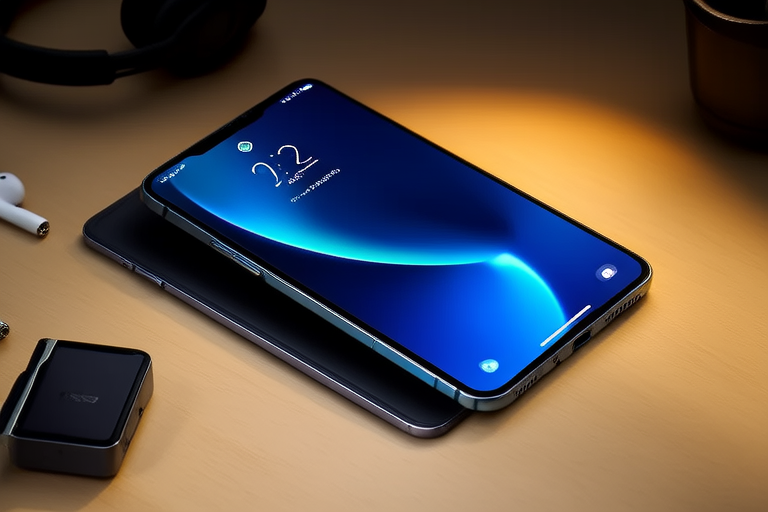From Phones to Tablets: Exploring the Future of Mobile Devices
Introduction
The journey from early phones to modern tablets represents a fascinating chapter in the history of technology. What began as simple communication tools has evolved into sophisticated devices that are integral to our daily lives. Early mobile phones were bulky, had limited functionality, and were primarily used for making calls and sending text messages. Over time, smartphones emerged, packing powerful processors, high-resolution displays, and advanced camera systems, transforming the way we interact with the world. Tablets, on the other hand, offered a larger screen size, making them ideal for multimedia consumption, productivity, and entertainment. Today, mobile devices are indispensable, serving as personal assistants, communication hubs, and entertainment centers.
Current Landscape
In the current landscape, smartphones and tablets have seen remarkable advancements in hardware and software. Modern smartphones feature cutting-edge processors like Apple’s A-series chips and Qualcomm’s Snapdragon series, which provide lightning-fast performance. Displays have also improved dramatically, with OLED and AMOLED screens delivering vibrant colors, deep blacks, and higher refresh rates. Camera technology has advanced to include multiple lenses, night modes, and computational photography, enabling users to capture stunning images even in challenging lighting conditions.
Software innovations have played a crucial role in enhancing user experiences. Operating systems like Android and iOS have become more intuitive and responsive, offering seamless multitasking and efficient resource management. Additionally, a vast array of applications, ranging from social media platforms to productivity tools, have revolutionized how we live, work, and play. These apps have made it easier than ever to stay connected, manage tasks, and access information at our fingertips.
Key Trends Shaping the Future
Several emerging trends are set to shape the future of mobile devices. Foldable screens represent one of the most exciting developments, offering the flexibility to switch between phone and tablet modes. These innovative designs promise to deliver a better user experience by providing larger screens without compromising portability. 5G connectivity is another significant trend, promising faster download speeds, lower latency, and enhanced reliability. This technology will enable real-time streaming, cloud-based gaming, and augmented reality (AR) applications, opening up new possibilities for immersive experiences.
Augmented reality is poised to transform mobile devices by overlaying digital information onto the physical world. From interactive maps to virtual try-ons, AR has the potential to enhance various aspects of our daily lives. Artificial intelligence and machine learning are also playing an increasingly important role in mobile devices, enabling personalized recommendations, voice recognition, and predictive analytics. These technologies will continue to improve as they become more integrated into our devices, making them smarter and more intuitive.
Future Innovations
Looking ahead, we can expect further innovations in mobile devices, including new form factors. Wearable technology, such as smartwatches and fitness trackers, is already gaining traction, but the future may bring more advanced wearables like smart glasses. These devices could serve as personal assistants, providing real-time information and enhancing our perception of the world around us. Other potential developments include flexible and transparent displays, which could open up new design possibilities and user interactions.
These innovations have the potential to impact various industries and everyday life. For example, healthcare professionals could leverage wearable devices to monitor patient health remotely, while augmented reality could revolutionize retail by allowing customers to visualize products in their homes before purchasing. In education, virtual and augmented reality could create immersive learning experiences, making complex concepts easier to understand. The possibilities are endless, and the future of mobile devices holds great promise.
Challenges and Opportunities
Despite the excitement surrounding future innovations, the mobile device industry faces several challenges. Battery life remains a critical issue, as users demand longer-lasting devices that can handle demanding applications. Privacy concerns are also growing, especially as mobile devices collect and process vast amounts of personal data. Ensuring user privacy and security will be paramount as we move forward. Environmental sustainability is another challenge, as the production and disposal of electronic devices contribute to pollution and waste. Addressing these issues will require collaboration between manufacturers, policymakers, and consumers.
However, there are also numerous opportunities for growth and innovation. As battery technology improves, we can expect devices to last longer and perform better. Advances in AI and ML will continue to enhance mobile devices, making them more intelligent and personalized. The development of sustainable materials and recycling programs will help reduce the environmental impact of mobile devices. By addressing these challenges and seizing these opportunities, the mobile device industry can thrive and continue to evolve.
Conclusion
In conclusion, the evolution of mobile devices from early phones to modern tablets has been nothing short of remarkable. The advancements in hardware and software have transformed the way we live, work, and communicate. Emerging trends such as foldable screens, 5G connectivity, and augmented reality are shaping the future of mobile devices, while innovations like wearable technology and smart glasses offer exciting possibilities. However, challenges such as battery life, privacy concerns, and environmental sustainability must be addressed to ensure continued progress.
The future of mobile devices holds great promise, with the potential to revolutionize various industries and enhance our everyday lives. As we look ahead, it is clear that the journey from phones to tablets is just the beginning of an exciting new era in mobile technology. Let us embrace these changes and explore the endless possibilities that lie ahead.


